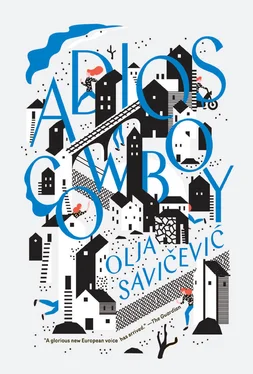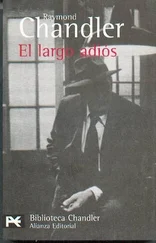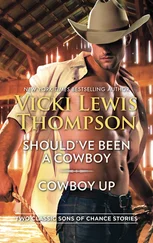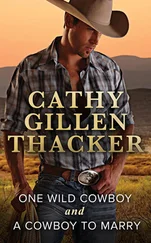What kind of… relationship was it? As soon as I approached, he would shove himself into me. Lying, sitting, standing, kneeling, he’d throw me onto my elbows, lift me onto the wall, a table, a tree, filling me.
I grabbed him. Kissed. Scratched. Hit. Gripped him, gripped him.
Stroked him, stroked him.
As we fucked, my arms grew out toward him, even facedown.
On the morning my sister phoned about Ma, I was sitting naked in his kitchen, watching CDs, which were strung up on the balconies of the neighboring building to scare the crows and pigeons, dancing in the wind. If I closed my eyes and ears tight, I could hear music from all directions in my head.
He had slipped out to the shop for some breakfast; he looked happy when I saw him for the last time, smiling with his dingo eyes. But by then I didn’t love him anymore.
I dressed unhurriedly and slammed the door shut.
The next day I left Zagreb and went to the Old Settlement.
It was forty degrees outside, in the bus probably only five, bitterly cold. The driver had put on the air-conditioning.
A short-legged white terrier crossed the empty road, so I couldn’t even say that there wasn’t so much as a dog in the streets.
* * *
“Rusty,” said a female voice, grabbing me by the shoulder.
I was sitting with my forehead stuck to the dirty window of the bus that went from the bus station through the car-ferry port into the outlying housing developments. I had shoved my suitcase behind my feet. Houses, mostly without facings but some white, various colors, were rising up in Tetris hills and hillocks at great speed. Every time I raised my head, on the hill in front of me there were yet more unfinished cubes with satellite antennae. The wind blew the soil off those hills, while goats had long ago devoured the original vegetation. In summer the north wind brought fires, and above the houses, on the mountain, black pines grew. Here and there one caught sight of a bush of maquis, prickly broom, or a palm with tiny inedible dates.
I stared at the face of the woman who had roused me from unconsciousness. The bus had left the bus station and the doors hissed shut.
“Rusty, I hasn’t seen you in an age… why’ve you come? Eh?”
Her skirt was tugged right up under her breasts; she was wearing shiny, lacquered pink boots with broken heels. She was swaying over my head, holding on to the strap with one hand.
Only someone from the Old Settlement could have called me Rusty.
“You’ve forgot me…”
Inflamed eyes under a shock of bleached, almost white curls.
“You’ve forgot me. Maria Čarija. The Iroquois’ cousin, for God’s sake!”
To the delight of the passengers, she tapped her open mouth with outstretched fingers briefly and jerkily several times, producing the old war cry of her tribe from the railway track by way of greeting.
She laughed with large yellow teeth, a young woman. What was with her hair? It stuck up in places in long and short thick white tufts, and in places there was none at all. Maria Čarija. That face.
“Why’ve you come? Why’ve you come?” she asked through her cracked lips.
“I ‘member you,” I said quickly. “I’ve come. The world goes ’round, and you always come back to the same place.”
“You never do ’member me,” she said loudly, right into my face.
Now the other passengers were looking at us quite openly, but cautiously, as you look at a spectacle involving two lunatics. If only I wasn’t dressed like this, in red. If only I wasn’t so tall. If I was smaller, paler, more functional.
“But I know you. Oh yes, I know you.”
She laughed with her big yellow teeth, hopping from foot to foot. She had followed Daniel secretly, couldn’t stop pursuing him, there was nothing to be done — he was like a magnet to her.
I pushed my case toward the door. There were still four stops before mine; I hoped I’d be able to walk that far. She had come close to my cheek. I noticed the locks of her hair had been pulled out, drawing blood.
“I know your brother too. I know who killed him,” she whispered.
“Oh, of course you do, why don’t you tell it all,” I muttered crossly, to myself.
The harmonica-like middle of the bus shifted under my feet. The doors hissed again and in the next shot I saw from the pavement Čarija’s face pressed against the bus window. She was licking the glass and smiling, cheerily, without malice.
And so I had made it. Yes, I’d made it! I’d returned to my hometown: nothing more than a vast rubbish dump, mud and olive groves, glorious dust, evenings on the empty terrace of the Illyria hotel, heavy metals in the air, excrement and pine woods, cats and slippery fish scales on the greasy slipway and the sea stretched out as far as November, when the north wind gets up.
On my route home, I see shopping malls and forests of jumbo posters, tundra and sorrowful bungalows on the road, but before that I pass along brightly lit walkways. Down below are the cruisers in the passenger harbor, guides with their arms in the air in front of a column of Japanese and American pensioners with prostheses and toupés; casinos, the mild winds of hashish, the stench of bodies and perfume; acid, transfolk as well as Saint-Tropez, Monte Carlo, Cista Provo, belle dame sans merci , girls in high heels squeezed into white nylon and animal skins; clean-shaven lads jingling the keys of polished cars, their hands, as they touch my face, smelling of vinyl and genitalia, money and tobacco.
Music blares, handfuls of worthless coins are scattered over the copper bar top. Salon Sodom. Cafe Eldorado.
There, on the glass-and-granite quay, while the yachts sail out of the harbor, the workers who swear that they destroyed communism are on strike. Their thinning hair is tied in ponytails, some have bad teeth, all have large hands and look younger than their wives. They sit around the fountain, among the trampled begonias, Indian figs, and dog mess, smoking York or Marlboro and saying that nothing’s going to change that’ll do them any good.
In the early hours, after midnight, women and men take off their clothes, discard their sandals, and go into the sea. They stand and immerse themselves in the sandy shallows. Girls and young men drink long cocktails out of thin glasses. Some foreign students lie on their backs, their legs together, and wave their arms to leave the imprints of wings. That game in the sand is called drawing angels.
The summer night has replaced the day in the flaming center of the town, under the moon’s bloody wink.
That is where I shall erupt from the total darkness of a side street and pass through a scene like this, pure and flat as a drawing — and come out of it appalled that so much life goes on without me.
My suitcase clatters along behind me, a faithful wheeled dog. Even if someone had picked me up and shaken me upside down, I wouldn’t have had enough cash for a taxi. People pass me in noisy groups: they are showered, with loud waves of brilliantine in their hair, while I smell of sweat and the sour bus. My short dress sticks to my back and legs.
I look around several times, afraid that Čarija will appear behind me and spit into my hair. We used to do that at one time. I’m almost ready to give the daft bitch a hiding, because of today, because of every yesterday and day before yesterday, because of things that aren’t connected and because once, long ago, her brothers cut my head open with a stone.
Maria had always been in the background: a silent Iroquois from that bellicose tribe. If she so much as made a sound, one of her relatives would bash her with a stick or turn on her with a “None of your crap.” Later her status improved — when it transpired that not one of the Iroquois, not even Tomi, could fire an air gun as accurately. When the fair came to town at New Year, the Iroquois Brothers took her to the shooting gallery and afterward exchanged their trophies — lucky charms and teddy bears — with the gallery manager for a bottle of Ballantine’s.
Читать дальше












